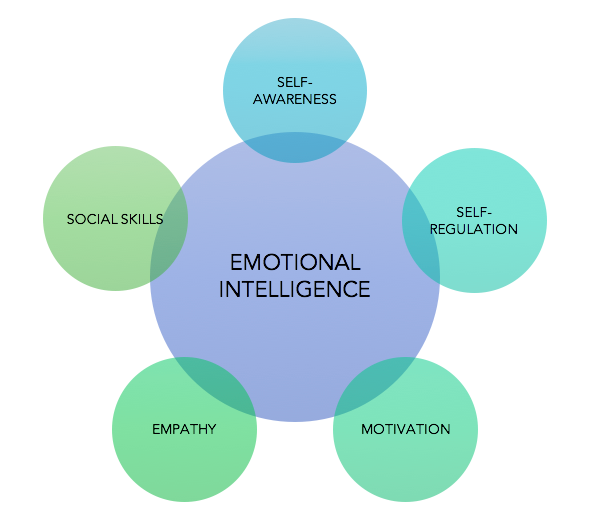
Emotional Intelligence is one of the favourite areas of UPSC and there are often questions on this topic in the General Studies Paper IV that is Ethics paper. I generally made notes of the keywords and looked up the keywords on Google to clearly understand them. You can do the same. I will reproduce my UPSC Ethics notes below:
What is Emotional Intelligence?
Emotional Intelligence (EI) is the ability of a person to identify, understand and manage the emotions of oneself and that of others.
Intrapersonal EI (One’s own Emotions)
- Self Awareness
- Identification of one’s own emotions
- Accurate self assessment
- self-confidence
- self-regard (knowing strength and weakness of oneself)
- Self management
- Impulse control
- Self control
- Conscientiousness (guided by conscience)
- Adaptability
- Goal-orientation
- Level-headedness
Interpersonal EI (Other’s Emotions)
- Social Awareness
- Recognizing others’ emotions
- Emotions of the society at large
- Organisational awareness
- Service orientation
- Empathy for others
- Social Skills
- Teamwork/ Leadership
- Conflict management
- Problem solving skills
- Communication skills
- Change catalyst
- Personnel management
- Influencing others
- Developing others and getting the best out of them
Importance of Emotional Intelligence
- Recognizing and managing one’s emotions to stay balanced
- Self-control and adaptability to changing work or social environment
- Correct and honest assessment of one’s own strength and weakness, thus maximize potential
- Managing a teamwork, inter-staff conflict resolution.
- self-motivation
- optimism and empathy helps to connect with others
Advantages
- Self Actualization (realizing one’s true potential)
- Improved social relationships
- reduces stress levels at home or at work
- Confidence and positive feeling
- gain respect and trust of others
- creativity and problem solving skills
Emotional Intelligence in Administration
- High Self Regard: Capitalize on strength and work on weaknesses
- Manage Change Effectively: Due to flexibility, convincing skills, consensus building and stress management
- Model the way: Assertive and independent, walks the talk, good listener but takes his own judgement
- Remains composed under pressure
- Encourages the Team: Keeps all motivated, avoids intra and inter-group conflicts, rewards in recognition of contributions
I hope this note on Emotional Intelligence helps you write better Ethics answers. Please share this article with others who cannot avail coaching.
Thanks a lot Sir:)
sir,provide smart notes on women problems,economic survey.